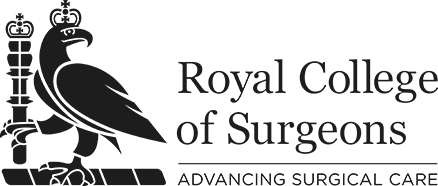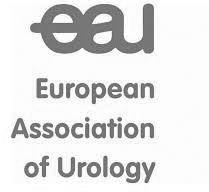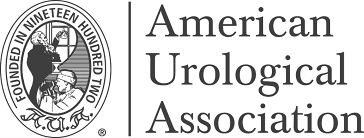Prof. Tet Yap, Consultant Urologist
Prof. Tet Yap
Consultant Urologist
Prof. Tet Yap MD MB BChir MA FRCS (Urol) FEBU
Consultant Urologist
Prof. Tet Yap
Consultant Urologist MD MB BChir MA FRCS (Urol) FEBU

Recommendations for Prof. Yap
These recommendations are for information purposes only. Doctors providing recommendations do so in good faith and are not responsible for clinical outcomes.












Recommended by:
Make an appointment
Address
-
The Princess Grace Hospital
42-52 Nottingham Place, London, W1U 5NY
-
The Lister Hospital
Chelsea Bridge Road, London, SW1W 8RH
-
The Princess Grace Hospital Outpatients
30 Devonshire Street, London, W1G 6PU
-
Devonshire Diagnostic Centre
16 Devonshire Street, Marylebone, London, W1G 7AF
-
Video Consultation
Virtual
-
London Bridge Hospital
27 Tooley Street, London, SE1 2PR
About Prof. Tet Yap
GMC number: 4673475
Year qualified: 1999
Place of primary qualification: University of Cambridge
Initial consultation fee: £330
Follow up consultation fee: £280
Prof. Tet L Yap is a consultant specialising in urology. He qualified from Cambridge in 2000 and completed specialist training in the Department of Surgery and Urology at University College London, Charing Cross Hospital, Great Ormond Street Hospital, and St Bartholomew’s Hospital. He has also completed several fellowships, including Stanford, Memorial Sloane Kettering, and UCL Hospital specialising in urology, and at Great Ormond Street Hospital specialising in andrology and paediatric urology.
In 2014, Prof. Yap was appointed as a consultant staff member at St George's Hospital. He established the complex andrological interventions service, which involves reconstructive surgery and penile prosthesis. Prof. Yap is also developing a male fertility clinic based at St George's and Croydon University Hospital. Additionally, he has set up an andrological services department at the Royal Marsden, particularly consulting on erectile dysfunction and providing infertility services.
His specialist interests include male fertility (oncofertility), erectile dysfunction, and reconstructive organ surgery.
Apart from his clinical work, Prof. Yap is an interviewer for registrar selection and serves as an editor of the British Journal of Urology International. He also contributes to fundraising for Great Ormond Street Hospital and the Evelina Children’s Hospital. In his personal time, he enjoys spending time with his family and playing tennis.
Some of the diseases he treats and medical tests and treatments he offers are:
- Reconstructive genital surgery
- Implant surgery
- Penile prosthesis
- Male fertility andrology
- Erectile dysfunction
- Penile curvature
Areas of expertise
- Andrology
- Circumcision
- Erectile dysfunction
- Female and reconstructive urology
- Implant surgery
- Infertility
- Male fertility andrology
- Penile curvature
- Penile prosthesis
- Reconstructive genital surgery
- Urological oncology
- Vasectomy (male sterilization)
Frequently asked questions
What are the common symptoms that your patients tend to present with?
Andrology is quite a wide field. It has to do with the genito-scrotal area. There are a lot of different things like phimosis, tight foreskin, varicocele, which can cause infertility, and/or can also cause immense pain.
One of the common conditions that I see is infertility. Many of the patients are couples who, after trying for a year or more without success to have a baby, do a semen analysis and find out there's a male factor involved.
The second group of patients that I see come with penile curvature. They come in with either congenital penile curvature or penile curvature developed later in life.
The third group of patients is men with erectile dysfunction. They can be young men or older men who have gradually developed erectile dysfunction or men who have unfortunately gone through surgery and then suffered erectile dysfunction.
The most common group I see are the post prostate, surgery patients.
The other big group of patients I treat is men with low testosterone. I evaluate them and see if they, in fact, need testosterone supplementation and evaluate if it's risky given the other things they are on and what their expectations are of having testosterone treatment.
There's a certain term called andropause, which is similar to the menopause, and it involves men who develop symptoms of low testosterone as they grow older. It's a recognised phenomenon, but it's also undertreated.
A specific group of patients with male infertility that I specialise in is men with the Klinefelter's syndrome. These patients have genetic problems with a need for a specific type of hormone stimulation, depending on the individual, to be able to stimulate sperm production prior to a sperm harvest.
One of the most common operations I do is the microscopic sperm harvest, commonly called Micro-TESE. We have one of the highest success rates in the world for Micro-TESE. It's down to examining the patient correctly in terms of the hormones and the general assessment, the selection and, finally, the operation itself and the andrologist involved.
What are the treatments that you're able to offer your patients?
I'm a specialist andrology surgeon. I deal with anything to do with the genito-scrotal area. My specialist interests are in minimally-invasive treatments for penile curvature. We're one of the biggest centres for intralesional treatment. We also treat penile curvature through other means like surgery.
For erectile dysfunction, especially in the post-prostatectomy group, we have a very popular and well-researched penile rehabilitation programme, which I developed for our prostate cancer patients and that is now being used in most of the trusts.
We have a finer variation of it for our patients in LUA because we have larger access to medication and intervention. It's a penile rehabilitation programme which, ultimately, if no medication or injections work, would lead to penile prosthesis surgery, which is something we offer.
In terms of penile rehabilitation, we are introducing shockwave therapy in LUA. We will be one of the first to develop a shockwave protocol, specifically for more complex patients. We know that in simple erectile dysfunction without pathology such as diabetes and so on, shockwave therapy does work.
In terms of microsurgery, we do a lot of fine work. Microsurgery is used, for example, to overcome blockages in the vas deferens in the genital tract, if you've had a vasectomy. If you want to reverse vasectomy, you do microsurgery to try and get the ends back together again.
We use microsurgery as well for sperm retrieval in men who are infertile and can't produce any sperm or in men who have recurrent miscarriages when undergoing ICSI or IVF. We find that retrieving sperm from the testes might be even better for assisted reproduction than ejaculated sperm.
Microsurgery is also used for varicocele repair.
We also do testosterone therapy. I advise testosterone therapy across a wide range of patients. When I was in Royal Marsden, we developed a protocol to determine the best formulation of testosterone therapy for certain complicated groups of patients who have multiple side effects with certain testosterone supplementation.
With respect to andropause, a large undiscovered number of men would require testosterone therapy.
What are your areas of sub-specialist interest?
One of the biggest parts of what I do relates to male infertility. We are at the forefront of male infertility research and treatment. We have developed new ways to diagnose male infertility and the causes of, for example, the current failures of IVF and ICSI and miscarriages.
Beyond the basic semen analysis, we have developed different techniques to optimise the success rate of sperm retrieval in men who do not produce sperm. 1% to 10% of those who are infertile actually do not produce sperm.
We have developed strategic ways to improve the yield of sperm through a microsurgical sperm harvest. Our unit is one of the top units in the UK doing this at the moment.
In terms of the other cutting-edge treatments, there is intralesional, minimally-invasive treatment for penile curvature.
Shockwave therapy is something that is at the forefront of erectile dysfunction. Rather than targeting the symptoms of erection by giving tablets, what we do is we try and target the pathological cause of erectile dysfunction by stimulating the nerves of the blood vessels to regenerate.
Professional memberships


























